
Editor's note: The Vocation of Business: Social Justice in the Marketplace was written by John Médaille, editor of The Distributist Review and member of The New Distributist League. We wish to applaud him for a job well done and recommend this book to all our readers.
The following is a review written by Angelo Matera from the Houston Catholic Worker:
It is ironic that because the Church refuses to accept the reduction of man to one dimension--homo economicus--thereby reducing all of life to matters of utility and exchange and profit, it is accused of being unrealistic and out of touch with economics. Médaille, in the opening pages of The Vocation of Business, thoroughly refutes the idea that the Church doesn't have the right to interfere with the "science" of economics (we've heard this before from extreme Darwinists who want the Church silenced on evolution). He asks "Is life, both the life of the world and the life of the individual, thus consigned to a kind of schizophrenia in which our moral life--the life of love and personal relationships and our deepest longings--is forever at odds with our 'scientific' life, the life in which we earn our daily bread?"
Médaille takes on the critics of CST [Catholic social teaching] on their own turf, accepting the challenge that "a 'teaching' which cannot be enacted in daily life and mundane concerns, which has no 'practical' application, is not really a teaching at all, but a mere set of platitudes." HE painstakingly builds the case for introducing ethics and justice into economics and business, starting with the most basic issues. He begins in the territory of Alasdair MacIntyre, the acclaimed Catholic philosopher who, in his 1981 book, After Virtue, argued that moral discussion isn't even possible in western societies anymore because we no longer share a common vocabulary. Médaille confronts this problem directly, and carefully reconstructs the process of moral reasoning, taking the reader all the way from the Bible and the Greeks to the Enlightenment, and the separation of reason from faith--the source of our modern (or post-modern) predicament, where relativism rules.
Médaille's range is breahtaking; he explains classical economic theory and the Church's social encyclicals, the arguments of the Catholic "neoconservatives," the history of "Distributism"--the Catholic-influenced movement for a wide dispersion of land and property which was promoted by G. K. Chesteron and Hillaire Belloc in England, and by Dorothy Day and Peter Maurin in this country. (Many progressives would be surprised to know that Day's urban-based Catholic Worker Movement advocated a radical, faith-based agrarian vision.) He continues on to the "just wage" and the theory of the corporation, and then presents several case studies of recent social and business innovations that illustrate how CST can be implemented. (These include the Distributist-inspired Mondragon Cooperative in the Basque region of Spain, and the Grameem micro-bank of Bangladesh.) Throughout, he weaves in history and theology, from the ancients through the medieval era to contemporary thought.
I've only touched on the breadth of ideas and examples that Médaille includes. The book is a densely packed 325-pages, yet the writing is always clear and elegant. It's not for the casual reader, but neither is it for the theological or economic specialist. It's aimed at the intelligent layman willing to put in some effort. Médaille covers so much, I'm surprised the book works so well. You would expect a few embarrassing simplifications, but there are none--the argument is airtight, and Médaille leaves almost nothing out (I wish he had addressed the mid-twentieth century economist Joseph Schumpeter, who coined the phrase "creative destruction," and reworkd classical economics to account for "disequilibrium" and the dominance of large firms. And although Médaille includes the communitarian economies of South Korea, Taiwan and Singapore, he doesn't mention the Catholic-influenced "Social Market" economy of post-World War II Germany.)
The Vocation of Business may be the definitive book on Catholic Social Teaching. But did Médaille accomplish his goal of bridging the gap between moral theory and business practice? I'm not sure. In the final paragraph, he says: "The world we live in is a world built by businessmen and -women." Unfortunately, I don't think this book will reach that audience. Theologians? Yes. Economists? Probably. And that's no small accomplishment. But I doubt it will engage the business leaders who run MBA programs and business magazines, or make the sort of impact that E.F. Schumacher's Small is Beautiful did. I don't think The Vocation of Business will spark a revolution of virtue-based business practicies (although I hope I'm proved wrong and it becomes the guidebook for thousands of social and business innovators.) It's an important stepping stone in that direction. But we still await that oh-so-necessary book. In the meantime, we should thank Médaille--and God--for this one.
It is ironic that because the Church refuses to accept the reduction of man to one dimension--homo economicus--thereby reducing all of life to matters of utility and exchange and profit, it is accused of being unrealistic and out of touch with economics. Médaille, in the opening pages of The Vocation of Business, thoroughly refutes the idea that the Church doesn't have the right to interfere with the "science" of economics (we've heard this before from extreme Darwinists who want the Church silenced on evolution). He asks "Is life, both the life of the world and the life of the individual, thus consigned to a kind of schizophrenia in which our moral life--the life of love and personal relationships and our deepest longings--is forever at odds with our 'scientific' life, the life in which we earn our daily bread?"
Médaille takes on the critics of CST [Catholic social teaching] on their own turf, accepting the challenge that "a 'teaching' which cannot be enacted in daily life and mundane concerns, which has no 'practical' application, is not really a teaching at all, but a mere set of platitudes." HE painstakingly builds the case for introducing ethics and justice into economics and business, starting with the most basic issues. He begins in the territory of Alasdair MacIntyre, the acclaimed Catholic philosopher who, in his 1981 book, After Virtue, argued that moral discussion isn't even possible in western societies anymore because we no longer share a common vocabulary. Médaille confronts this problem directly, and carefully reconstructs the process of moral reasoning, taking the reader all the way from the Bible and the Greeks to the Enlightenment, and the separation of reason from faith--the source of our modern (or post-modern) predicament, where relativism rules.
Médaille's range is breahtaking; he explains classical economic theory and the Church's social encyclicals, the arguments of the Catholic "neoconservatives," the history of "Distributism"--the Catholic-influenced movement for a wide dispersion of land and property which was promoted by G. K. Chesteron and Hillaire Belloc in England, and by Dorothy Day and Peter Maurin in this country. (Many progressives would be surprised to know that Day's urban-based Catholic Worker Movement advocated a radical, faith-based agrarian vision.) He continues on to the "just wage" and the theory of the corporation, and then presents several case studies of recent social and business innovations that illustrate how CST can be implemented. (These include the Distributist-inspired Mondragon Cooperative in the Basque region of Spain, and the Grameem micro-bank of Bangladesh.) Throughout, he weaves in history and theology, from the ancients through the medieval era to contemporary thought.
I've only touched on the breadth of ideas and examples that Médaille includes. The book is a densely packed 325-pages, yet the writing is always clear and elegant. It's not for the casual reader, but neither is it for the theological or economic specialist. It's aimed at the intelligent layman willing to put in some effort. Médaille covers so much, I'm surprised the book works so well. You would expect a few embarrassing simplifications, but there are none--the argument is airtight, and Médaille leaves almost nothing out (I wish he had addressed the mid-twentieth century economist Joseph Schumpeter, who coined the phrase "creative destruction," and reworkd classical economics to account for "disequilibrium" and the dominance of large firms. And although Médaille includes the communitarian economies of South Korea, Taiwan and Singapore, he doesn't mention the Catholic-influenced "Social Market" economy of post-World War II Germany.)
The Vocation of Business may be the definitive book on Catholic Social Teaching. But did Médaille accomplish his goal of bridging the gap between moral theory and business practice? I'm not sure. In the final paragraph, he says: "The world we live in is a world built by businessmen and -women." Unfortunately, I don't think this book will reach that audience. Theologians? Yes. Economists? Probably. And that's no small accomplishment. But I doubt it will engage the business leaders who run MBA programs and business magazines, or make the sort of impact that E.F. Schumacher's Small is Beautiful did. I don't think The Vocation of Business will spark a revolution of virtue-based business practicies (although I hope I'm proved wrong and it becomes the guidebook for thousands of social and business innovators.) It's an important stepping stone in that direction. But we still await that oh-so-necessary book. In the meantime, we should thank Médaille--and God--for this one.



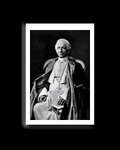
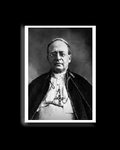

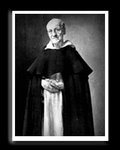
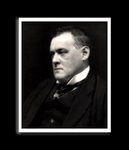
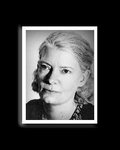
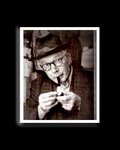






No comments:
Post a Comment